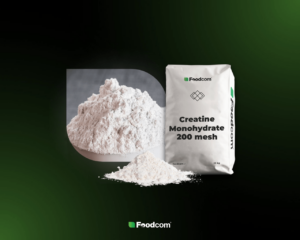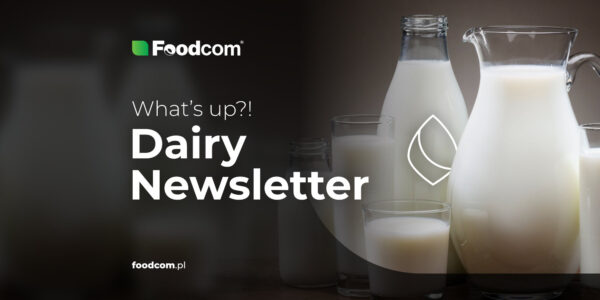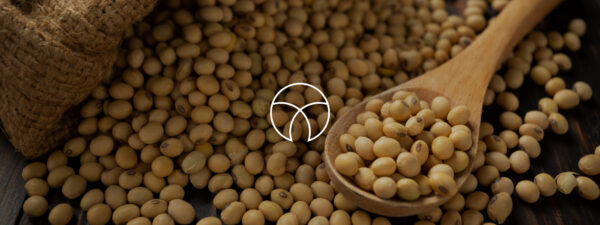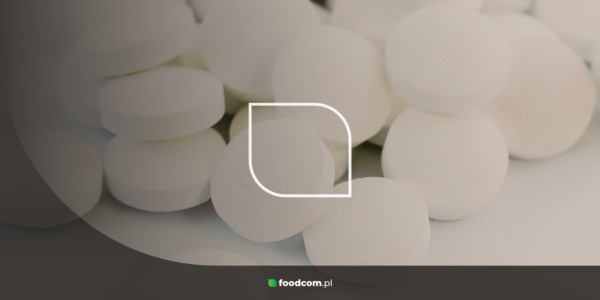Hello Partners!
Welcome back to our Newsletter!
Explore the latest trends and developments shaping the global additives market. From the growing demand for L-lysine and creatine to the challenges facing taurine supply chains, learn more about the dynamic landscape of these important raw materials. Also, stay up to date on regulatory reforms in the Australian pesticide sector and the volatility of arginine and potassium chloride prices amid geopolitical tensions and economic factors. Learn more about the market drivers influencing decisions and strategies across all sectors.
Let’s take a look at what else is happening on the market!
Products of the Week!
Lysine
The market for Lysine has shown signs of stability in recent weeks, with a significant price increase that can be seen as a signal of growing demand, particularly in the nutraceutical and animal feed industries. Against the backdrop of a global economic recovery and positive trends in US production, this substance maintains a strong position in the market despite potential logistical obstacles such as the closure of the Port of Baltimore. With around 40% of the EU import quotas for lysine hydrochloride and liquid lysine from China being utilized, this market is showing solid consumption in the first quarter of the year, which could indicate a good direction for the coming months.
Creatine
In April 2024, prices for creatine began to rise and exceeded the previous level. This increase is due to the growing interest in the substance in the health and sports sector and intensive research into new products. Despite logistical and regulatory challenges, particularly in the United States, the popularity of creatine supplements continues to grow and drive demand.
Taurine
High taurine prices are maintained due to strong market demand and complex logistics. Disruptions, such as the closure of the Port of Baltimore, are among the supply chain challenges helping to maintain this price level. Experts expect this trend to continue as logistical challenges remain.
NEWS
Australian government reforms APVMA to prioritize safety
The Australian Government is planning to reform the Australian Pesticides and Veterinary Medicines Authority (APVMA) to improve the quality and integrity of its decisions and reduce its previous emphasis on speed rather than safety in approving pesticides. This initiative follows a review that criticized APVMA’s oversight and industry compliance. Reportedly, fast-track approvals were favored while thorough safety testing was neglected, sometimes taking nearly 30 years. Agriculture Minister Murray Watt emphasized the need for a balanced approach that prioritizes the environment and public health, amid concerns that delays in approving new products have led to significant crop losses. The reform also provides for the APVMA to remain in the regional town of Armidale to maintain its independence and efficiency and counteract the instability caused by its previous relocation.
Arginine prices rise in Germany due to supply chain challenges
Prices for arginine in Germany rose in April, driven by robust demand from the pharmaceutical, nutraceutical and healthcare industries, while domestic supplies are dwindling and logistical delays are occurring globally. This trend is being exacerbated by the recovery of the manufacturing sector in China, which is increasing Chinese exports, including to Germany. Geopolitical tensions between Iran and Israel threaten to further disrupt trade routes and increase transportation costs, contributing to rising arginine prices. As consumer sentiment in Germany improves and inflation rates fall, demand for arginine is expected to remain strong and prices will rise in the coming months.
European market for potassium chloride records price decline
In March 2024, the European potassium chloride market saw a price decline due to weak consumer demand and oversupply, particularly in Belgium. Despite the usual increase in demand before spring, sluggish economic activity and sufficient domestic stocks kept prices low. Factors such as the interruption of shipping due to attacks in the Red Sea, production restrictions in Europe, sanctions against Russia and Belarus and trade restrictions in China also weighed on the market. In addition, reduced trading activity in key consumer countries such as Brazil and China during the holidays contributed to the downward pressure on prices. Industry forecasts indicate that prices are likely to remain subdued due to these ongoing supply and demand issues.









